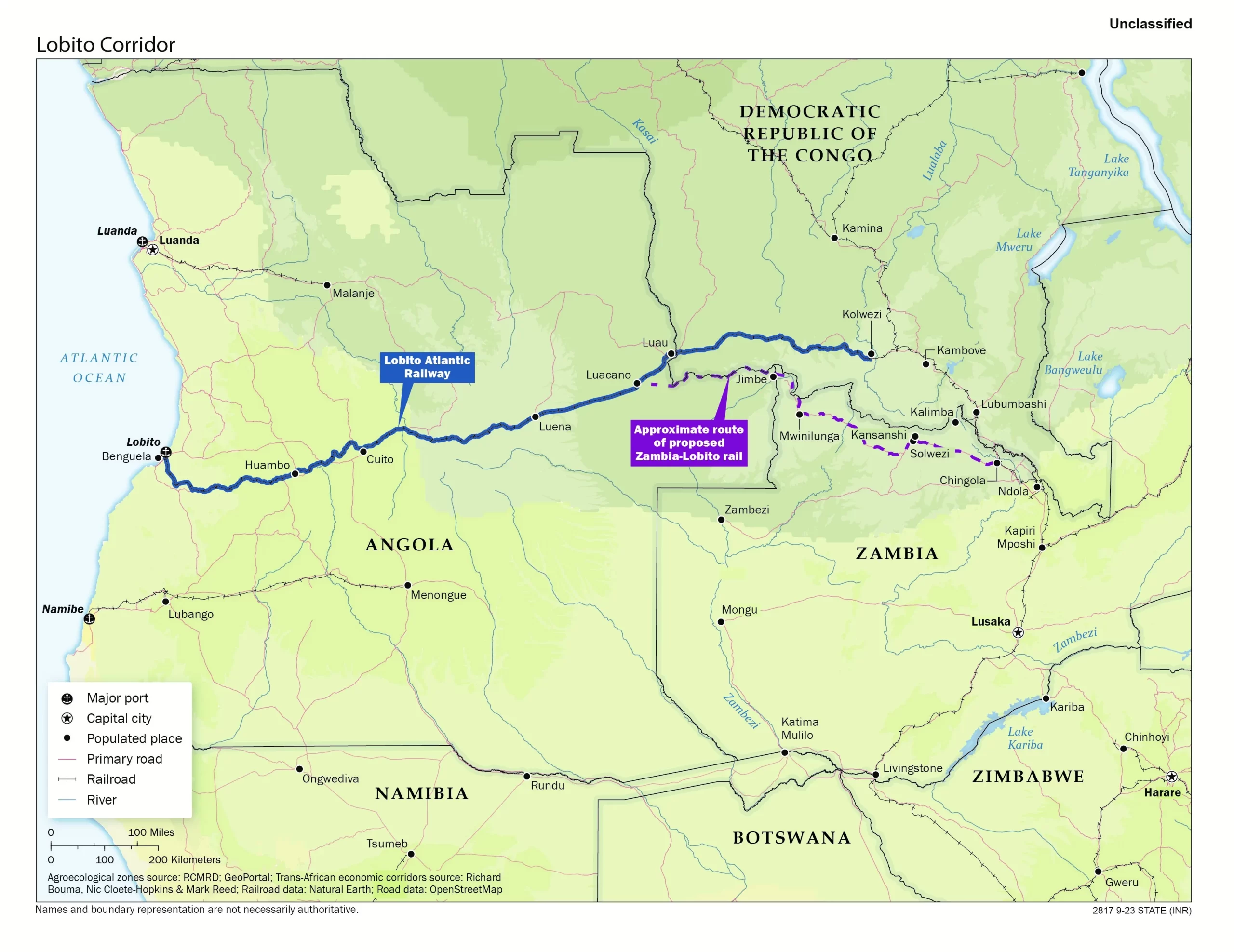U.S. President Joe Biden’s official trip to Angola marks a significant moment in U.S.-Africa relations, focusing global attention on the Lobito Corridor. As his only official visit to the African continent during his presidency, Biden’s presence underscores the strategic importance of this economic initiative, not just for Angola but for the entire region.
The Lobito Corridor: A Strategic Economic Artery
The Lobito Corridor, hailed as the first flagship project under the G7 Partnership for Global Infrastructure and Investment (PGII), is a transformative infrastructure initiative. It links Angola, Zambia, and the Democratic Republic of Congo (DRC) to global markets through the Port of Lobito on Angola’s Atlantic coast. This corridor serves as a vital economic artery, providing these nations with unprecedented access to international trade routes.
In concrete terms, the Lobito Corridor is more than just a railway or a series of roads. It is a lifeline for landlocked nations like Zambia and the DRC, rich in natural resources but often hampered by logistical and infrastructural barriers. By connecting these countries to global markets via the Atlantic and Indian Oceans, the corridor is set to unlock untapped potential, improve export opportunities, and catalyze regional economic growth.
The Summit: A Gathering of Visionaries
President Biden will attend an international summit on the Lobito Corridor, joined by leaders from Angola, the DRC, Tanzania, Zambia, and representatives from the Africa Finance Corporation (AFC). The agenda includes:
- Further Development of the Corridor: Exploring ways to expand and enhance the infrastructure, including railways, ports, and supporting facilities.
- Investment Opportunities: Highlighting regional and international investments to accelerate economic activities and foster industrial growth.
- Zambia-Lobito Railway Project: Prioritizing the next phase of this crucial infrastructure, which is key to connecting Zambia’s copper-rich regions to global markets.
A $10 Billion Commitment
The White House has announced a U.S. investment of $4 billion in the Lobito Corridor, while total international commitments, including G7 partners and regional development banks, exceed $6 billion. Key players include:
- Governments: The U.S., Angola, DRC, and Zambia.
- Multilateral Institutions: The European Commission, African Development Bank (AfDB), and the Africa Finance Corporation (AFC).
- Private Sector Involvement: Anticipated to play a major role in delivering value-added services and industrial growth.
These investments aim to modernize infrastructure, stimulate job creation, and enable value addition across the supply chain, particularly in the resource sectors of the DRC and Zambia.
Unlocking Africa’s Potential
The Lobito Corridor is more than an infrastructure project—it represents a vision for Africa’s future. By connecting regions, fostering industrialization, and enabling resource-exporting nations to access global markets efficiently, the project will:
- Promote Economic Growth: Strengthen regional trade and commerce, contributing to GDP growth in participating nations.
- Create Jobs: Direct and indirect employment opportunities, from construction to logistics and export-driven industries.
- Drive Value Addition: Empower local industries to process raw materials domestically, rather than exporting them in raw form.
Strategic Implications
For the U.S., this initiative reflects a shift in its engagement with Africa, prioritizing infrastructure, trade, and partnership over aid. It also positions the U.S. as a counterweight to other global powers, particularly China, which has been heavily involved in African infrastructure for decades.
From an investment perspective, the Lobito Corridor opens new frontiers. The region’s abundant natural resources, from copper and cobalt to agricultural products, are now more accessible to global investors.
A Call to Action
Invest Offshore encourages forward-thinking investors to watch developments in the Lobito Corridor closely. The corridor’s transformation will unlock opportunities in logistics, mining, and manufacturing, particularly in Angola, Zambia, and the DRC.
With U.S. and international backing, this project has the potential to reshape Africa’s economic landscape. For investors seeking growth and diversification, the Lobito Corridor is not just a railway—it’s the track to Africa’s future.

Leave a Reply